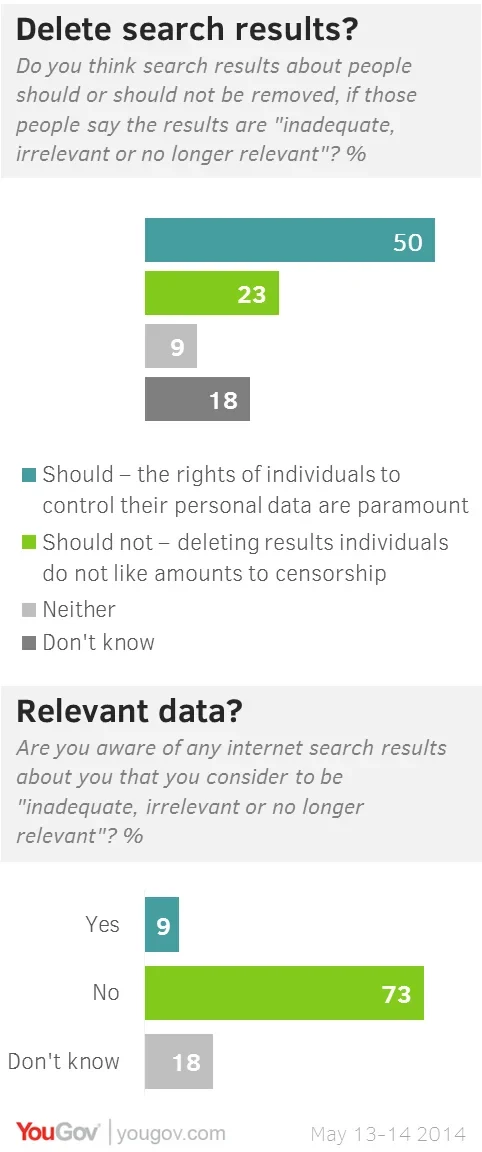By 50-23% British people think internet results about people should be removed if they are “inadequate, irrelevant or no longer relevant” – but few have use for the rule
In 2012 the European Commission proposed a law giving people the “right to be forgotten”. On Tuesday, the law was successfully applied for the first time, in a ruling which requires Google to remove search results about a man that he says damaged his reputation.

The law could have wide-reaching implications: the EU hopes the “right to be forgotten” principle would allow users to demand social networks to get rid of embarrassing photos – or even any data on them they may hold.
For now the rule will only allow users to have results about them considered “inadequate, irrelevant or no longer relevant” removed by search engines. And on this 50% of people agree – ‘the rights of individuals to control their personal data are paramount’.
23%, however, agree with the argument that deleting results individuals do not like amounts to censorship, and do not think results should be removed on request. This is the view that people might be able have stories about them deleted simply if they do not like them, something that is “akin to marching into a library and forcing it to pulp books”, for some critics of the ruling.
Google said they found the ruling “disappointing”, and commentators warn it could have huge consequences for anyone who publishes material online. However, only 9% of British people say they are aware of “inadequate, irrelevant or no longer relevant” search results about themselves. Of these people, three-quarters do say they would like the results removed.
YouGov has previously found that 51% of people have googled themselves while 49% have not. But of those people who have searched for their name, 24% found no entries about themselves at all.
While critics of the ruling worry about censorship, the EU made it clear there would be a public interest defence against deletion of data, whereby information would not be removed if the public’s right to find it is greater than the impact on an individual’s privacy—in other words, it will be more difficult to have data deleted if you are a politician.
Image: Getty







